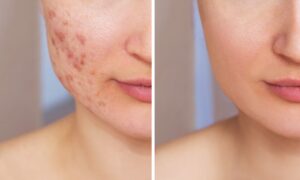Are you someone who can’t start their day without a cup of joe? Or perhaps you rely on multiple cups throughout the day to keep your energy levels up? Well, grab a seat and hold onto your coffee mug because we’re about to dive into the surprising side effects of consuming too much of that beloved java. From jitters that make you feel like you’re tap-dancing on air to insomnia that keeps you tossing and turning all night, it’s time to uncover what excessive caffeine intake can do to both our bodies and minds. So, if you’ve ever wondered why that extra shot of espresso leaves you feeling wired rather than energized, this blog post is brewed just for you!
Introduction
Coffee is one of the most popular beverages in the world, and for good reason. It’s delicious, energizing, and can help you wake up in the morning. But like all things, too much coffee can have negative side effects.
If you drink too much coffee, you may start to experience jitters. This is because coffee contains caffeine, which is a stimulant. Caffeine can cause your heart to race and your hands to shake. You may also feel anxious or irritable.
Too much coffee can also lead to insomnia. Caffeine prevents your body from naturally producing melatonin, which is the hormone that makes you feel sleepy. So if you drink coffee late at night, you may have trouble falling asleep.
In addition to jitters and insomnia, drinking too much coffee can also cause upset stomachs, dehydration, and increased blood pressure. So next time you reach for another cup of Joe, make sure you’re not overdoing it!
What are the Side Effects of Too Much Coffee?
Coffee is one of the most popular beverages in the world, and millions of people drink it every day. While coffee has many health benefits, including improved mental alertness and a decreased risk of certain diseases, drinking too much coffee can lead to some unwanted side effects.
The most common side effect of drinking too much coffee is anxiety. This is because caffeine is a stimulant that can increase your heart rate and make you feel jittery. If you drink a lot of coffee and don’t get enough sleep, you may start to feel anxious and irritable.
Drinking too much coffee can also cause insomnia. Caffeine prevents your body from producing the hormone melatonin, which helps you fall asleep. So if you drink coffee late in the day, it may make it harder for you to fall asleep at night.
Another side effect of consuming too much caffeine is an upset stomach. Caffeine can stimulate the production of acid in your stomach, which can lead to heartburn or indigestion. And if you drink coffee on an empty stomach, you may experience nausea or vomiting.
If you’re someone who drinks a lot of coffee, it’s important to be aware of these potential side effects. While they may not be severe, they can still be unpleasant. If you find that you’re experiencing any of these side effects after drinking coffee, try cutting back on your intake or switching to decaf.
Short-Term and Long-Term Side Effects
Coffee is one of the most popular beverages in the world, and for good reason. It’s affordable, easy to find, and, most importantly, it tastes great. But as with anything, there can be too much of a good thing. Drinking too much coffee can lead to some surprisingly unpleasant side effects.
In the short term, drinking too much coffee can cause jitters, anxiety, heart palpitations, and insomnia. These are all due to the increased levels of caffeine in your system. Caffeine is a stimulant that speeds up your nervous system and raises your heart rate. It’s also a diuretic, which means it makes you have to pee more often.
In the long term, drinking too much coffee can lead to more serious health problems like high blood pressure, heart disease, and kidney disease. This is because caffeine is also a vasoconstrictor, which means it constricts your blood vessels. This can lead to increased blood pressure and put strain on your heart. Caffeine is also addictive and can lead to withdrawal symptoms like headaches and irritability when you try to cut back or quit altogether.
So if you enjoy your morning cup of joe, be sure to drink it in moderation. Your body will thank you for it!
How do you tell if You’re Drinking Too Much Coffee?
Coffee is a beloved morning beverage for millions of people around the world. But how do you know if you’re drinking too much coffee? Here are some signs that you might be consuming too much caffeine:
You feel jittery or anxious after drinking coffee.
You can’t sleep at night after having coffee in the evening.
You need more and more coffee to feel alert.
You have trouble concentrating.
You get headaches when you go without coffee.
How to Reduce Your Caffeine Intake
Caffeine is a central nervous system stimulant and the most commonly consumed psychoactive substance in the world. It can be found in coffee, tea, energy drinks, chocolate, and many over-the-counter medications. Caffeine is absorbed quickly and has its effects within 45 minutes of ingestion. The half-life of caffeine (the time it takes for your body to remove half of the caffeine you consumed) is about 5 hours. This means if you consume 200 mg of caffeine at 9 a.m., by 2 p.m. you’ll still have 100 mg of caffeine in your system.
While moderate amounts of caffeine (200–300 mg per day) are generally safe for most people, consuming too much caffeine can lead to unpleasant side effects such as anxiety, jitteriness, headaches, and insomnia. If you’re struggling with any of these side effects, it may be time to reduce your caffeine intake. Here are a few tips on how to do so:
- Gradually reduce your intake: If you’re used to drinking several cups of coffee per day, start by reducing your intake by one cup. Once you’re comfortable with that, reduce your intake by another cup, and so on until you’re down to one cup or less per day.
- Substitute decaf coffee or tea: If you enjoy the taste of coffee or tea but want to reduce your caffeine intake, opt for decaf versions of these beverages. Decaf coffee typically contains 2
Healthy Alternatives to Coffee
When it comes to coffee, moderation is key. Too much of this popular morning beverage can lead to some unwanted side effects, including jitters, anxiety, and insomnia. If you’re someone who struggles with sleepless nights or anxiety, you may want to consider cutting back on coffee or switching to a healthier alternative. Here are a few options to consider:
Green tea: Green tea contains less caffeine than coffee and is also rich in antioxidants. This makes it a great choice for those looking for a healthy alternative to coffee.
Herbal tea: Herbal teas are caffeine-free and can be very soothing. Chamomile and lavender teas are especially good for promoting relaxation and sleep.
Decaf coffee: Decaf coffee still contains some caffeine, but it’s much lower than regular coffee. This makes it a good option for those who want to enjoy the flavor of coffee without the potential side effects.
Water: Sometimes the simplest solution is the best one. Staying hydrated by drinking plenty of water throughout the day can help fight fatigue and promote better sleep at night.
Conclusion
In conclusion, it is safe to say that coffee can be an incredibly beneficial part of your daily routine. However, too much of anything can have adverse effects on our bodies and minds, as we’ve seen with the side effects associated with drinking too much coffee. If you find yourself experiencing any of the aforementioned symptoms or dealing with persistent insomnia due to caffeine intake, make sure to consult a medical professional immediately. Remember, moderation is key when it comes to enjoying the perks of drinking coffee without suffering its potential drawbacks!



































